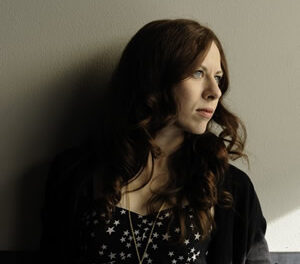The spectral figures filed onto the stage at Meymandi Concert Hall through a London-like fog. (The fog-generating machine was in good order.) As the haze was lifting, The Raleigh Ringers waded into “Requiem (The Fifth),” Hart Morris’s handbell arrangement of a classical mix. Following seamlessly was the familiar and appealing “Farandole” from Bizet’s L’Arlésienne Suite No. 2, in an arrangement by William H. Griffin. In choosing these opening pieces, director David Harris had evidently been studying the Oxford Book of Carols, because it seemed that “…all the bells on earth did ring.”
These eighteen ringers continue to amaze with their virtuosity, tossed off with such deceptively nominal effort. So here’s a number that they couldn’t possibly adapt to bells in any credible manner, right? Let’s take a shot at Boots Randolph’s “Yakety Sax.” Turns out that Kryn Krautheim has arranged that piece especially for the Raleigh Ringers! Well, Rimsky-Korsakoff’s “Flight of the Bumblebee” and Sousa’s “Stars and Stripes Forever” will definitely stump them. Nope, they used Martha Lynn Thompson and William H. Griffin arrangements, respectively, of these two for their crowd-pleasing encores.
Tchaikovsky would almost certainly have smiled upon the Fred Gramann arrangement of “Dance of the Sugarplum Fairy” from The Nutcracker Suite, like most of the pieces on the program, created specially for these Ringers.
If the handbell community in this country had ever named a “dean,” Donald E. Allured (1922-2011) would probably have been chosen for the honor. His “Aria” (yet again written for the group) received a tuneful and elegant treatment, an affectionate tribute to his stature and longevity.
The fun touch was much in evidence after the intermission. Wearing ghastly outfits and reveling in their outlandish antics, they performed two jumping arrangements by ensemble member Keith Burt, “Dust in the Wind” and “(Don’t Fear) The Reaper.” The aforementioned Hart Morris furnished “Linus and Lucy” and the showpiece percussive (how do they do that?) finale, “Wizards in Winter.”
Two fantasies by Vaughan Williams were noteworthy for their winning qualities. The Gramann arrangement of “King’s Weston” featured variations of the theological standards, “O Sacred Head Now Wounded” and “If Thou But Suffer God to Guide Thee.” Perhaps the finest pure musical treat of the afternoon was the fantasy on “Kingsfold,” a number that Harris said was new to the group. Here the ringers were able to capture all the allure of that old English folksong charmer.
This program was the first in the series of a dozen or so upcoming ones that will see these ringers into a multi-state odyssey. If the reaction of the audience in Raleigh was any indication, music lovers across the Eastern U.S.A. are in for a swell time.











